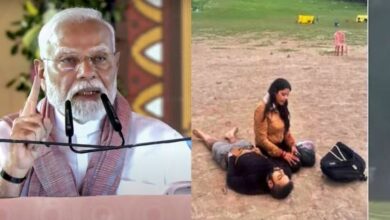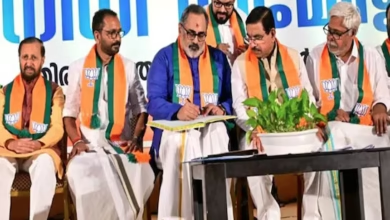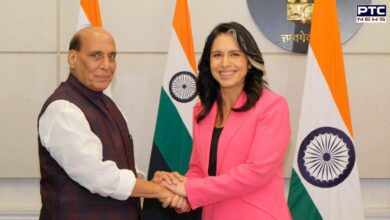Left-backed MLA connects Kerala’s drug trafficking to Madrassa students, IUML responds strongly.
Independent MLA from Thavanur in Kerala, KT Jaleel, stirred controversy by claiming that many individuals involved in drug trafficking hail from Madrassas. In response, IUML MLA Najeeb Kandhapuram condemned his comments as unfounded and politically driven, further alleging a potential CPI(M)-BJP alliance in the upcoming elections.
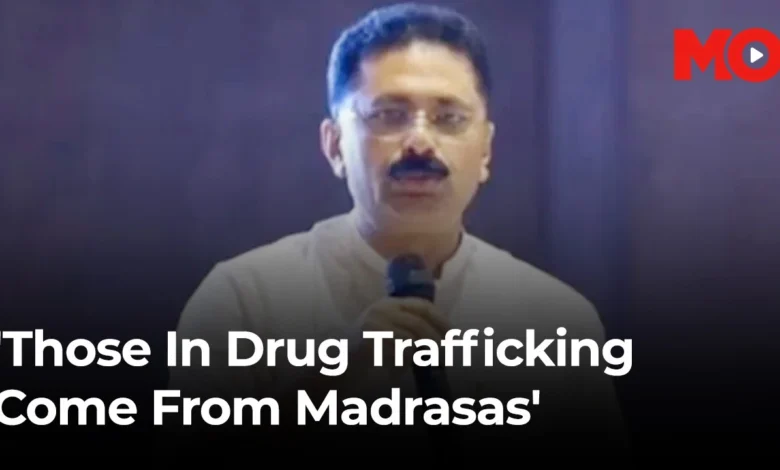
Row Breaks Out as Kerala MLA Connects Drug Trade to Madrassa Students
A provocative statement by KT Jaleel, an independent MLA from Kerala’s Thavanur, has triggered outrage and controversy throughout the state. In his recent comments, Jaleel associated drug smuggling in Kerala with Madrassa students, which has triggered widespread criticism. The comments have been severely criticized by various political leaders, particularly from the Indian Union Muslim League (IUML), who have termed the allegation as unfounded and politically motivated.
KT Jaleel’s Observations on Drug Trafficking
In a subsequent speech that caused controversy, KT Jaleel asserted that the majority of students involved in Kerala’s drug trafficking are from Madrassas. He stated that this association between Madrassa students and drug trafficking is something that needed to be worked on as part of the greater effort to rid the state of the increasing menace of drugs. His remarks, which he delivered in a public speech, immediately became public and drew mixed responses throughout the political spectrum.
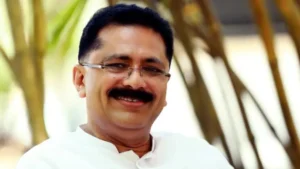
Although Jaleel’s words were meant to bring to light the problem of drug trafficking in Kerala, the way he approached his argument by connecting it with a particular institution and community has been criticized at large for being discriminatory and divisive. His statements were perceived by most as a move to stereotype a section of society, further fueling the already charged political atmosphere in the state.
IUML’s Response
The comments have triggered a pointed reaction from the IUML, one of Kerala’s leading political parties. Najeeb Kandhapuram, an IUML MLA, was among the first to criticize Jaleel’s remark. Kandhapuram blamed Jaleel for uttering frivolous accusations that were politically motivated. He observed that the remark was not only frivolous but also irresponsible, as it had the ability to generate division and grudge among communities.
Kandhapuram also attacked Jaleel for employing such sensitive topics for political mileage. In the view of the IUML MLA, these comments were a part of a larger plan to seek votes from certain sections of the electorate by resorting to communal lines. The IUML also attacked Jaleel’s own political leanings, stating that his comments were a move to discredit the image of certain communities for the advantage of a specific political agenda.
CPI(M)-BJP Nexus Allegations
Besides his criticism of Jaleel’s statements, Najeeb Kandhapuram also claimed that the Communist Party of India (Marxist) – Bharatiya Janata Party (BJP) connection may be involved. Kandhapuram theorized that the CPI(M) and BJP may have an alliance planned for the coming elections. He indicated that this political alliance might be a ploy to enhance the BJP’s reach in Kerala, where the party has found it difficult to make major strides.
This assertion has brought new complexity to the current political debate in Kerala. The IUML and other parties have spoken about their fears of such an alliance, positing that it might alter the balance in Kerala’s politics.
Political Fallout and Escalating Tensions
Jaleel’s comments and the resulting fallout have added to political tensions within Kerala, whose communal identity issues and political rivalries have never been particularly salubrious. Kerala’s energetic and diverse civil society has for years been its pride, but such comments run the risk of exacerbating factional divisions across the state.
The scandal has also highlighted the drug trafficking problem in Kerala, which remains a worsening issue. Though there is no denying that drug trafficking and abuse are major problems in the state, most of the critics maintain that the focus should be kept on solving the root causes of the issue—such as ignorance, economic growth, and rehabilitation—instead of blaming certain groups.
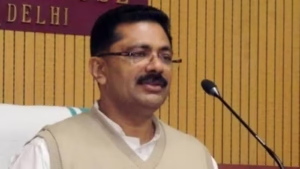
Conclusion
The row over KT Jaleel’s comments on drug trafficking and Madrassas indicates the growing polarized political atmosphere in Kerala. Although the issue of drug trafficking is one that needs to be addressed with a sense of urgency, the polarizing language employed to define the debate threatens to undermine the unity of the state. The reactions from the IUML and other political leaders have called for responsible rhetoric and an attention to dealing with the underlying reasons for social ills instead of politicizing them.
As Kerala gets ready for elections in the future, political alignments will surely continue to shift, with parties leveraging sensitive topics to mobilize their bases. Nevertheless, it is still important for leaders to exercise constructive discourse and refrain from making remarks that can incite strife in the state.


